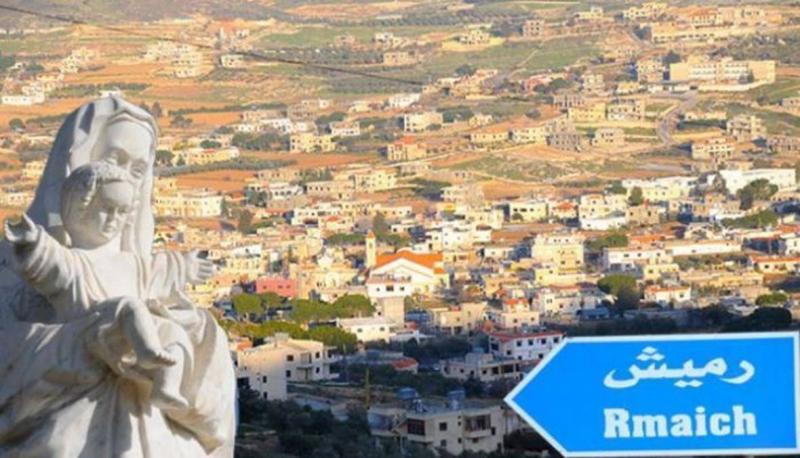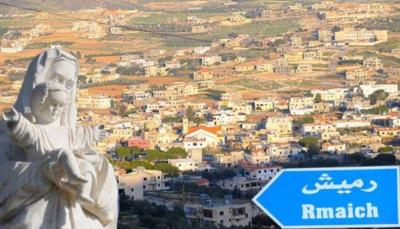On the Lebanese border with Israel, the hopeful residents of the Christian town of Rameesh wish for their village to escape the horrors of war, but at the same time, they are preparing for the possibility of escalating fighting between Hezbollah and Israel. Rameesh is located just a few kilometers from the border and has already endured three weeks of clashes along the frontier. Half of its residents have fled north since shells began falling on nearby hills. The disruption of the olive harvest has affected them more than the violence that Southern Lebanon has experienced since the war between Hezbollah and Israel in 2006.
The village is also living in the turmoil that has engulfed Lebanon due to the conflict occurring about 200 kilometers away between Israel and Hamas. The remaining residents of Rameesh avoid considering the crisis that has brought the conflict to their doorsteps and are making efforts to carry on with their normal lives, with the village's 18th-century church still holding three masses daily. Village priest Tony Elias, 40, noted, as a military drone buzzed overhead, "We feel somewhat stable." He added that they have grown accustomed to hearing the sound of drones all week long.
Rameesh is one of about ten or more Christian villages near the border with Israel in predominantly Shia Southern Lebanon. During the 2006 war, about 25,000 people from surrounding towns sought refuge in Rameesh. Memories of the 2006 conflict loom large. Local residents and charities have set up a temporary hospital in a school in anticipation of escalating clashes between Hezbollah and Israel, which have mostly been confined to areas along the border so far. Dr. George Madi, a physician from the village, stated that they established the field hospital in preparation for worsening conditions similar to those experienced in the July 2006 war.
The war and peace tensions are impacting the local economy, exacerbating the difficulties faced by residents still suffering from the devastating financial collapse in Lebanon four years ago. Sharl Alamm, 58, who earns his income from tobacco farming, an industry historically significant in Southern Lebanon, said that if the war prolongs, he would not be able to stay in the village. He added that during the 2006 war, the tobacco plants in the fields dried up, and no one could harvest them. While farmers managed to gather this year's crop, they harbor doubts about their ability to plant for next year.
Many locals said that business in Rameesh has generally come to a standstill. Unlike the surrounding areas, there is no trace of Hezbollah's yellow and green flag in Rameesh. The Mayor of Rameesh, Milad Alamm, avoided criticizing Hezbollah and stated that the Lebanese Army should be the only military force in Lebanon, a sentiment echoed by Hezbollah opponents who argue that its arsenal has undermined the state. Alamm remarked, "There are no shelters in the village." Priest Elias expressed confidence that Rameesh would not be bombed, adding, "In the end, we know that nothing will happen in the village... We put our trust in God."




